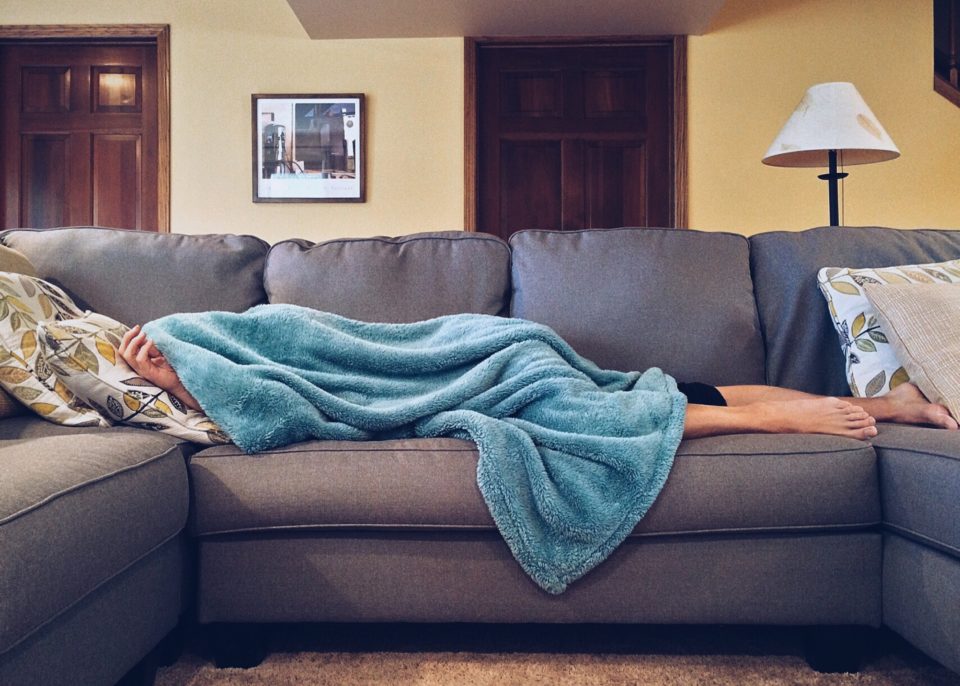Is your snoring generating unwanted noise for your partner? Have you considered sleeping in separate bedrooms just so you can get a good night’s sleep? You aren’t the only one. Snoring is caused by loose tissue in the back of the throat, that sags or hangs down and covers the trachea(also referred to as windpipe). Although it may seem like an innocent enough nuisance that can be easily dealt with by a pair of earplugs, it can actually be a very serious health concern.
Snoring or Sleep Apnea?
Although these terms are sometimes used interchangeably, Obstructive Sleep Apnea is significantly more dangerous than regular snoring. Sleep Apnea is a disorder where the soft tissues in the larynx sag or hang below the trachea, the passage in our throat used for breathing. This can cause the patient to suffer from waking up in the middle of the night, feeling like he or she is having difficulty breathing or even a choking sensation. If you experience symptoms of waking from sleep or feel that you have difficulty breathing due to your snoring, be sure to contact a licensed medical professional.
Adjusting Your Sleep Position
One of the easiest methods to address snoring is to avoid sleeping on your back. Sleeping on your back allows the loose tissues in and around your larynx to be affected by gravity, causing a greater chance for full or partial obstruction of the trachea. These loose tissues, such as the base of your tongue and soft palate, are very flexible structures that are easily susceptible to forces like gravity. If you find it difficult to remain on your side or stomach, placing a firm pillow behind you while you step is a great way to prevent yourself from rolling over onto your back in the middle of the night. A more drastic fix is to tape tennis balls to the back of your ankles, preventing your feet from resting comfortably in that troublesome position.
Sleep Hygiene
This can be one of the most influential factors on your snoring. If you only go to sleep when you are overtired, the muscles in and around your throat will be relieved that you have finally chosen to go to sleep. This can cause additional sagging within the base of the tongue and soft palate, two soft tissue structures within the throat that cause snoring. Ensuring that you get a solid 8-10 hours every night can be a game changer for some, as it will ensure that your body has enough energy to keep the muscles in your throat firm while you sleep.
Weight Loss
Losing excess weight can dramatically decrease the amount of fat stored within the soft palate and tongue, which will allow those soft tissues we discussed earlier to remain in their proper position while sleeping. The more fat a patient has gathered around their neck, the more pressure gravity will put on the internal diameter of the throat, increasing the likelihood of obstruction. Additionally, exercise will increase your lungs’ ability to take in air, which can substantially assist with those suffering from Sleep Apnea or snoring.
Avoiding Alcohol
Alcohol acts as a vasodilator, causing your veins, tissues, and muscles to become more relaxed. This can cause the trachea to have a smaller internal diameter due to excess neck fat, as well as causing the tongue and soft palate to sink further than normal. There is also anecdotal evidence that some patients who have no history of snoring, will end up snoring the night after they have consumed alcohol.
Blocked Nasal Passages
Snoring can most easily be prevented by keeping your nasal cavities clear before you get to bed. An easy way you can accomplish this is by adding blowing your nose to your nightly routine, but if this isn’t enough there are many other remedies worth giving a try. Some doctors say their patients find success by taking a hot shower before bed. By allowing the steam from a hot shower or bath to enter your nasal passages it can expand those cavities and increase airflow. Additionally, you can use a neti pot or sinus rinse for when the volume of nasal blockage is more substantial.
Changing Your Pillows
Every night when you put your head on your pillow, the sweat and oils from your face, head, and neck seep into the foam or feathers that make up your pillow. Additionally dust particles that float in the air get trapped inside, causing the pillow to lose its firmness. Doctors recommend that if you are experiencing snoring issues, buying yourself a new set of pillows might be an easy and helpful fix. Dust and other allergens like pet dander can build up within your pillows that you rest your head on and breathe next to throughout the night, causing an increase in mucus and inflammation of the nasal passages.
Hydration
Drinking water and staying well hydrated is a key component to sleep hygiene, as your body uses the night to repair the cells in your body for the coming day. Additionally, the secretions that develop on your tongue and soft palate(such as mucus and saliva) become much stickier when you are dehydrated, which can cause further obstruction of the trachea.


